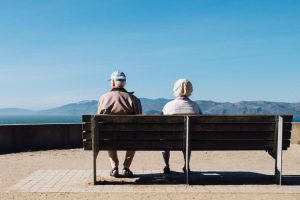During COVID-19 and social distancing, it’s important for seniors — especially seniors with diabetes — to make sure they’re doing everything in their power to maintain healthy, active lifestyles. It’s not easy to keep up the motivation, but there are a few steps you can take to dramatically reduce your chance of developing diabetic foot ulcers, and other unpleasant side effects of diabetes.
Am I at risk for a diabetic foot ulcer?
Everyone with diabetes is at risk for developing a diabetic foot ulcer, and you’re more likely to develop them if you’re older. About 15% of diabetics get a diabetic foot ulcer. Of those, around one-third of those patients develop diabetic foot ulcers. As patients get older, those odds increase and 40% of patients who have had a diabetic foot ulcer will develop another one at some point in their life.
Cooking at home
You’re probably cooking more at home, so why not make the most of it? Good nutrition is essential both for managing diabetes symptoms and helping diabetic wounds heal.
- Protein is an especially important nutrient for wound-healing, so make sure you’re getting plenty of beans, eggs, fish, and tofu.
- Research has shown that the Meditteranean diet has an especially positive effect on diabetes. Look up your favorite Greek recipes that have a good balance of fresh produce, fish, and olive oil, and very low carbohydrates, sugar, and red meat.
Staying active
Staying active can play a huge role in ensuring that diabetes patients keep their symptoms in check. Gyms are closed, so what to do?
If you’ve ever considered setting up a home gym, now is the time! Studies have shown that resistance training has substantive benefits, so think about investing in light weights or resistance bands. They don’t have to be super heavy, they just have to be heavy enough to make your muscles feel the burn. And if you’ve never used weights before, lifting soup cans or water bottles is a good start.
We all want to get outside, but many don’t yet feel comfortable going places that may have crowds. Luckily, many hiking trails have started to re-open, and hiking can provide an easy way to remain active while social distancing. Hiking is a great form of cardio, and has been shown to have a positive effect on blood glucose levels.

